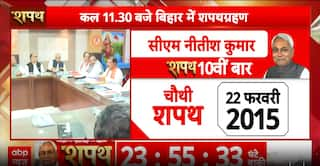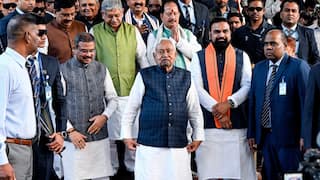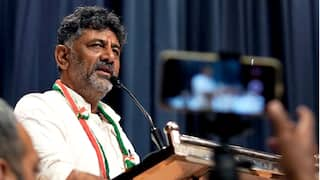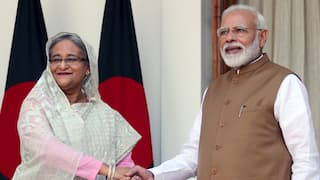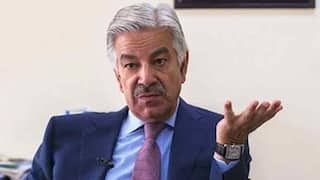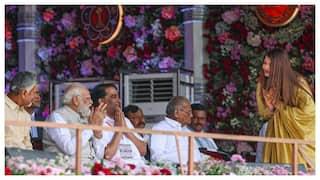ICC World Cup Expected To Contribute As Much As Rs 22,000 Crore To GDP: Bank of Baroda
The tournament spreading over 45 days with 48 matches among 10 teams is set to attract 25 lakh people at the 10 venues and total viewership is expected to be far larger than last time
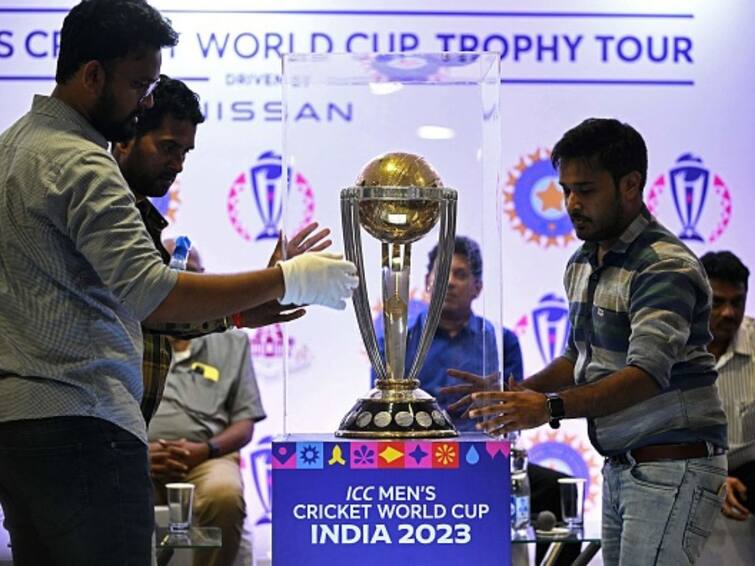
The ICC-Men’s World Cup 2023 set to commence today may contribute as much as Rs 22,000 crore to the Indian economy, according to economists at the Bank of Baroda. The tournament spreading over 45 days with 48 matches among 10 teams is set to attract 25 lakh people at the 10 venues across the country and total viewership for the tournament is expected to be far larger than last time, the report said on Wednesday.
"We believe that the World Cup has the potential to boost India’s GDP, more so because it coincides with the festive season. Consumption sector, particularly services consumption is likely to receive the maximum boost. Hospitality and tourism sector are likely to benefit the most," wrote economists Jahnavi Prabhakar and Aditi Gupta.
"In terms of impact on GDP, with an estimated additional output of Rs 18,000-22,000 crore attributed to the World Cup, the impact on gross value added is estimated to be around Rs 7,000-8,000 crore," economists added.
The report said that based on the stadium capacity and charges for each ticket, it is expected the total ticket sales will be in the tune of Rs 1,600-2,200 crore. This is based on the assumption of varied attendance for each match with all India games registering 100 per cent attendance.
Apart from this, the total viewership for the tournament (through mediums such as TV, OTT etc.) is expected to be far larger than last time (552mn-Indian viewers for the 2019 World Cup-BARC data). The sponsorship/TV rights for this grand event can account for another around Rs. 10,500-12,000 crore on a conservative basis.
These include official broadcast rights for both digital and TV, including revenue added through the other marquee sponsors for advertisements during the course of the event. "It must be noted here that while the telecast rights and sponsorships usually are for a longer period and no necessarily pertain to a singular event, the total has been included here as we assume that World Cup will be the key trigger for these," the report said.
For the tournament, the teams will be traveling across cities along with the umpires and commentators, total expenses for this are likely to be around Rs 150-250 crore. The event will also attract foreign tourists and they will be spending on hotel, food, travel, including shopping which will add Rs. 450-600 crore, assuming there are 1,000 tourists coming for each of the matches, the report noted.
Similarly, domestic tourists (travelling to venues) will be spending Rs 150-250 crore for interstate travel, hotels and food. Moreover, people will also be travelling in the same city to catch a game and spend on fuel cost along with expenses on food. This is estimated to be Rs 300-500 crore.
The expenditure on event management, gig workers (volunteers), and security expenses during the entire duration of the game will add another Rs 750-1,000 crore. The event will further trigger purchases of sports memorabilia and other merchandise items adding Rs 100-200 crores. For screenings of these matches at restaurants, cafes and home viewers ordering food through apps will add a sum of Rs 4,000-5,000 crore during the entire duration of the event.
Also Read: India's Services Sector PMI Expands In September, Hits 61 On Robust Demand
"Based on this, the total expenditure during the World Cup is expected to be in the range of Rs 18,000-22,000 crore. The grand sporting event is expected to boost the services sector with tourism and hospitality sector benefitting the most out of it," economists said.
The report noted that the last Cricket World Cup in 2019 in England contributed handsomely to the UK's GDP. There is an expectation of a similar story to be repeated, this time for India. On the inflation side, the report noted that services inflation will be impacted for sure as prices of airline tickets, hotel accommodation, etc. have gone up for this period.
"However, this would be restricted to these 10 cities for the period of October and November only. As these trends are also witnessed during these months due to seasonal impact of festival season, the impact of the World Cup could be hard to separate. The upward bias in inflation on this score could be between 0.15 per cent and 0.25 per cent for these two months (without separating the festival spending impact)," the report noted.












